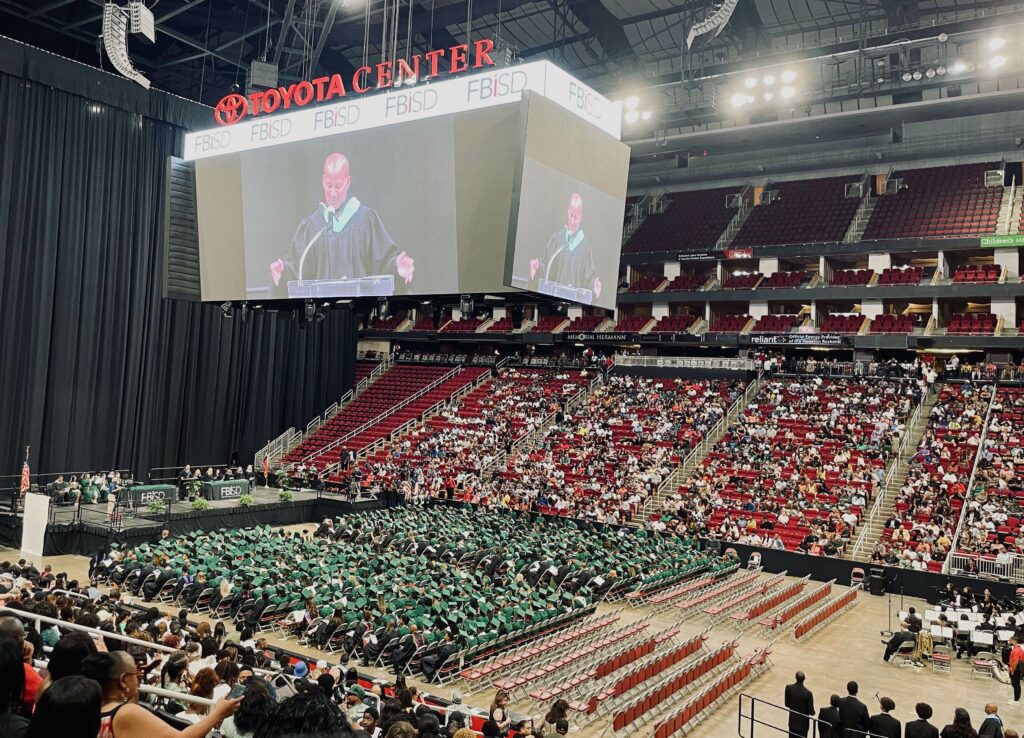
It has been a while since I sat down to write an article and I didn’t realize it had been so long! It feels like some days there is so much to do. I went to visit my family and saw my niece graduate from high school. She has done so well and it was nice to see the family. Interestingly, even though it has been years since I graduated, in many ways, they are the same: exuberant graduates, relieved and happy parents, supportive and happy friends. Speeches and pomp and circumstance but now with big screen TVs — this grad ceremony was held in the Toyota Center!
So … after the speeches and celebrations, it’s up the graduate to decide the next steps: college, trade school, working, or maybe a gap-year full of travel? Big decisions that can be literally life changing!

College costs have risen so high, it can exclude many students. However, there can be ways to make college more attainable besides just expensive loans.
The College-Level Examination Program® (CLEP) can help students achieve college credits for a fraction of the costs. This can be a good option if someone is good at reading and taking exams. Many students are very smart and a regular classroom moves too slow. CLEP exams allow you flexibility to study and take the exams at your pace.
Tuition Reimbursement Programs at private companies can help as well. Usually, you have to get the class (and/or degree program) approved. Pay for the first class up front and if you don’t have the funds, this is a good use for your credit card. Pay the minimum payment until you pass the class with a B or better and then file for reimbursement and use that payment to pay off the first class.
Both of these options together can help a student pursue a degree. Maybe not as fast as the full-time path but it can be a jump start and you can earn valuable work experience with health insurance!
While it is great to pursue a vocation in an area you love, it may not make a lot of sense to pursue a degree that may leave you with a lifetime of debt. This is not an endorsement to suffer through college to get a job that is boring and/or you are otherwise unsuited for. Rather, most colleges have as part of their orientation classes, tests for aptitude, interests and personality to aid in career planning. Often there may be several occupations or career paths for which you are well-suited. Therefore, how do you choose?!
Well, one way is to look at the free Government resource: The Bureau of Labor and Statistics (BLS), Occupational Outlook Handbook. They even provide a helpful video to help you in your career search. I am so surprised that most high schools never mention this free resource. Well, that said, many adults have no idea that it exists. Why is this important. College is one of the most important investments you can make besides buying a house and saving for retirement. Well, there may be a few more things, but college may be the foundation of your earnings for the rest of your life!
So…when deciding to invest time, money and hard work towards a future occupation, there are things to consider such as:
- Job Opportunities and Locations
- Salaries
- Future growth and/or decline in Occupations and Areas
These are important factors since most students take an average of 4-5 years to complete a Bachelor’s Degree. If you desire to be a Lawyer or a Chiropractor where are the new job openings? What is the cost of living in the area? The job may pay more in NY City but the cost of living may mean your actual money after your bills may be less than if you took a lower paying job in Alabama. Often cities have higher rent costs than small towns.
When you first go the BLS site, it may be overwhelming. Another awesome and free resource is your neighborhood Librarian at the Public Library or the College Counselors. All of this information can also be useful for someone going to college, looking to make a career change or to move to a new location. The key takeaway is that investing wisely in you and your future can help you build a very comfortable and rewarding life! Best Wishes to all of the new graduates!
References:
https://clep.collegeboard.org/clep-benefits-for-everyone
https://www.nerdwallet.com/cost-of-living-calculator
https://myscholly.com/50-companies-with-amazing-tuition-reimbursement-programs/
![]()

I loved reading this because as you know my son graduated in that huge venue from a super 6A school in Missouri City. My son has decided to be a home inspectors apprentice to a family friend and will be interning for awhile and starting at $65,000.00 a year instead of spending way more than that to attend a 4 year college. Most universities aren’t what they used to be and the the debts students accrue can take a lifetime to repay as I learned first hand. This article was very informative and I will be sharing it with him. It was such a blessing to meet you in a serendipitous way. I love that you are a writer. I write as well just not as well as this. I have forgotten everything I have learned from my writing classes in college although I do remember a bit about MLA format.
Hi Shane,
Thank you so much for your response! I first obtained an A.S. General Studies degree and years later finished my B.S. Economics. I learned a lot about the challenges of going to school at night and trying to get ahead in the corporate world. I agree, it’s not for everyone! Sounds like your son is off to a great start and I wish him and you all the best!! It was great to meet you too.
Meeting you in such a serendipitous way still baffles me. You have such a fun and beautiful spirit. Let’s chat sometime! I enjoy your posts and blog.